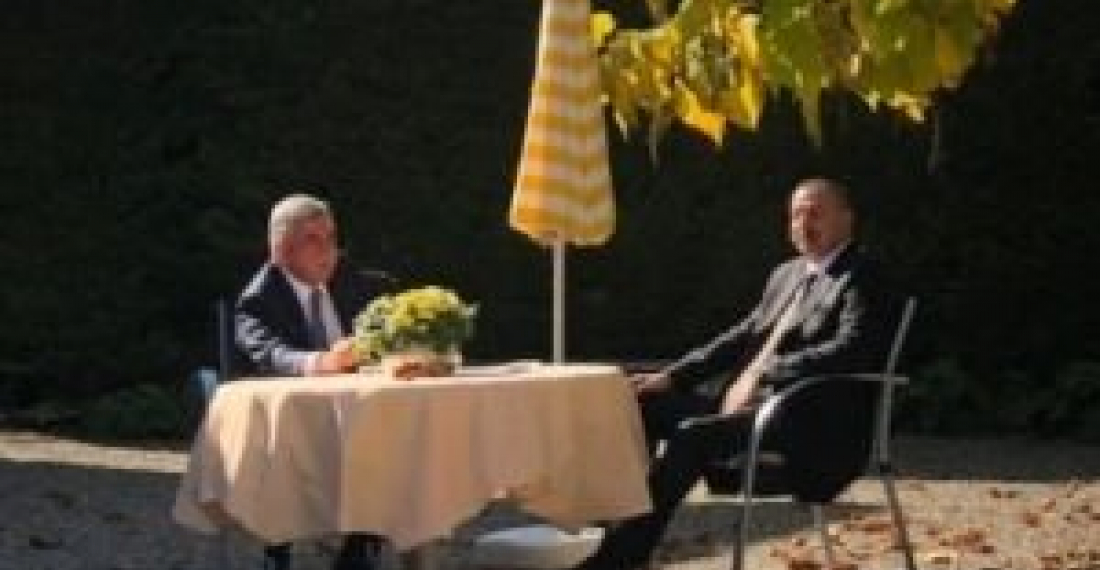President Serzh Sargsyan of Armenia and President Ilham Aliyev of Azerbaijan held a meeting in Geneva on Monday 16 October in an effort to re-start negotiations on resolving the Nagorno-Karabakh conflict. After meeting with the co-chair of the OSCE Minsk Process, the two presidents held a tete a tete meeting. A statment issued by the Foreign Ministries of the two countries, together with the co-Chair of the OSCE Minsk process said that the meeting took place in a constructive atmosphere.
The statement added:
"The Presidents agreed to take measures to intensify the negotiation process and to take additional steps to reduce tensions on the Line of Contact.
The Co-Chairs expressed their satisfaction with these direct talks, which took place after a long interval. They remain ready to work with the sides on mediating a peacefully negotiated settlement of the Nagorno-Karabakh conflict. As a next step, the Co-Chairs will organize working sessions with the Ministers in the near future."
Foreign Ministers Edward Nalbandian and Elmar Mammadyarov also attended the meeting, which was organized under the auspices of the Co-Chairs of the OSCE Minsk Group (Igor Popov of the Russian Federation, Stephane Visconti of France, and Andrew Schofer of the United States of America). The Personal Representative of the OSCE Chairperson-in-Office Andrzej Kasprzyk also participated in the summit.
Commonspace.eu political editor said in a comment that "the dry statement issued at the end of the talks was not a surprise. After months of tension and mutual recriminations it was hardly likely that one al fresco meeting will do what many other encounters had not succeeded in doing. The statement does not indicate a breakthrough, simply a committment to re-engage. But the meeting was necessary to draw a line under a very difficult period in the negotiation process and the presidents now seem to have given a mandate to their two foreign ministers to engage again in a constructive fashion. If this is enough to avoid another round of violence only time will tell."
source: commonspace.eu with the press service of the OSCE







